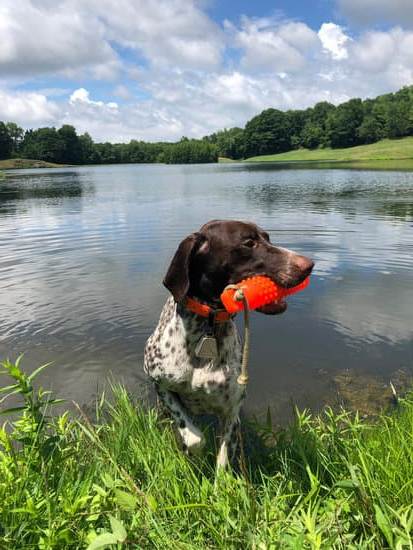Border patrol dogs are integral members of law enforcement teams tasked with securing borders and detecting illegal activities. Their exceptional sense of smell allows them to detect illicit substances, contraband, and even hidden individuals. The question on many people’s minds is: what are border patrol dogs trained to smell? These highly trained canines play a crucial role in preventing crimes at the border and ensuring the safety of their human counterparts.
The use of dogs for border patrol purposes dates back to ancient times when they were employed for tracking and protection. Over the years, the training methods and techniques for these specialized canines have evolved significantly, enhancing their abilities to sniff out hidden threats effectively. Today, different breeds are carefully selected and trained for their unique characteristics that make them ideal for border patrol work.
In the demanding training process, border patrol dogs are taught to detect a wide range of scents, including illicit drugs, firearms, explosives, currency, human scent, and agriculture products that may pose a threat at the border. Through specific reinforcement methods and scent recognition exercises, these canine partners develop an unparalleled ability to identify potential risks swiftly and accurately. Their success stories in apprehending criminals and intercepting illegal cargo highlight the invaluable contributions they make to law enforcement efforts.
History of Border Patrol Dogs
The history of border patrol dogs dates back to the early 1900s when they were first used for law enforcement purposes along the United States-Mexico border. Initially, these dogs were primarily utilized for tracking and apprehending individuals attempting to cross the border illegally. Over time, as criminal activities at the border became more sophisticated, the role of border patrol dogs evolved to include detection of illicit substances and contraband.
Throughout the years, there have been significant advancements in the training methods and techniques used for border patrol dogs. What started as basic obedience training has now transformed into specialized programs focused on scent detection. These programs have been designed to harness and enhance the incredible olfactory abilities of dogs, making them invaluable assets in detecting various illicit items at the border.
Evolution of Training Methods
The evolution of training methods for border patrol dogs includes a shift towards positive reinforcement techniques that encourage desired behaviors through rewards rather than punishment. The use of operant conditioning, where dogs are trained to associate specific scents with rewards, has proven to be highly effective in enhancing their scent detection abilities. This modern approach not only improves performance but also strengthens the bond between handlers and their canine partners, leading to more successful outcomes in border security operations.
Origins of Using Dogs
The origins of using dogs for border patrol purposes can be traced back to their natural instincts and capabilities as hunters and trackers. Their keen sense of smell, which is estimated to be up to 100,000 times more sensitive than that of humans, makes them ideal for detecting a wide range of scents.
By utilizing these inherent abilities and incorporating them into structured training programs, border patrol dogs have become indispensable assets in maintaining security at borders around the world.
Breeds of Border Patrol Dogs
Border patrol dogs are an integral part of law enforcement that play a crucial role in securing borders and detecting illicit substances. These specially trained canines rely heavily on their keen sense of smell to sniff out narcotics, firearms, explosives, currency, human scent, and agriculture products. The breeds selected for border patrol work are chosen for their specific characteristics that make them well-suited for the job.
German Shepherds are one of the most commonly used breeds for border patrol purposes due to their intelligence, loyalty, and strong sense of smell. Belgian Malinois is another popular breed known for its agility and high energy levels, making them ideal for demanding work environments like border patrol. Labrador Retrievers are also frequently employed in this role because of their friendly demeanor and superior detection abilities.
These breeds undergo rigorous training processes to enhance their natural scent-detection abilities further. They are taught to identify specific odors through positive reinforcement techniques and reward-based training methods. By associating target scents with rewards or toys during training sessions, border patrol dogs learn to alert handlers when they detect prohibited substances accurately.
| Border Patrol Dog Breed | Main Characteristics |
|---|---|
| German Shepherd | Intelligent, loyal, strong sense of smell |
| Belgian Malinois | Agile, high energy levels |
| Labrador Retriever | Friendly demeanor and superior detection abilities |
Training Process
Border patrol dogs undergo rigorous training to develop their keen sense of smell that makes them invaluable assets in law enforcement. The process of training these canine officers is meticulous and strategic, focusing on enhancing their ability to detect a variety of scents accurately. Here is a breakdown of the training process that border patrol dogs go through:
- Scent introduction: Border patrol dogs are first introduced to the scents they will be trained to detect, such as illicit drugs, firearms, explosives, currency, human scent, and agriculture products. This familiarizes them with the odors they will encounter on the job.
- Behavior reinforcement: Trainers use positive reinforcement techniques, such as praise or treats, to reward border patrol dogs when they successfully identify and signal the presence of a target scent. This helps reinforce the desired behavior and encourages dogs to continue detecting odors effectively.
- Scenario-based training: Dogs undergo various scenarios during training where they are tasked with locating hidden contraband or substances in different environments. This type of training helps them adapt to real-life situations they may encounter while on duty at the border.
The training process for border patrol dogs is intense and continuous, ensuring that these canines are always sharp and ready to perform their duties effectively. Through consistent practice and reinforcement, these highly skilled animals develop an unparalleled ability to detect scents with remarkable accuracy.
What Are Border Patrol Dogs Trained to Smell
Border Patrol dogs are highly skilled and trained to detect a wide range of scents when carrying out their duties at the border. These canine law enforcement partners play a crucial role in detecting illicit substances and contraband that may be smuggled across borders. One might wonder, what are border patrol dogs specifically trained to smell? The answer lies in their specialized training programs that hone their olfactory senses to detect various items of interest.
Illicit Drugs and Narcotics
One of the main focuses of training for Border Patrol dogs is the detection of illicit drugs and narcotics such as cocaine, heroin, and methamphetamine. These substances are often concealed in vehicles, luggage, or hidden compartments, making them challenging for law enforcement officers to find without the help of these highly trained canines.
Border Patrol dogs are taught to recognize the specific odors associated with different types of drugs, enabling them to alert their handlers when they come across these illegal substances.
Firearms and Ammunition
In addition to detecting drugs, Border Patrol dogs are also trained to sniff out firearms and ammunition that may be smuggled across the border. The ability to locate these weapons is essential for preventing violent crimes and protecting officers and civilians from potential harm. By being able to identify the scent of firearms, Border Patrol dogs play a vital role in intercepting illegal weapons before they can reach dangerous individuals.
Explosives
Another important aspect of Border Patrol dog training is teaching them how to detect explosives. These highly trained canines play a critical role in homeland security by identifying explosive materials that could pose a threat if brought into the country illegally. By recognizing the distinct scents associated with explosives, Border Patrol dogs can help prevent acts of terrorism and ensure the safety of those who live near or cross the border.
Real-Life Applications
Border patrol dogs play a vital role in law enforcement efforts to secure the border by using their keen sense of smell to detect a variety of illicit substances and contraband. These highly trained canines have been instrumental in ensuring the safety and security of borders around the world. They are often referred to as the first line of defense due to their ability to sniff out hidden items that human agents may not be able to detect.
What are border patrol dogs trained to smell, you may wonder? These remarkable animals are trained to detect a wide range of scents, including illicit drugs and narcotics, firearms and ammunition, explosives, currency, human scent, and agriculture products. Their olfactory senses are so acute that they can locate even small quantities of these items hidden in vehicles, luggage, or on individuals attempting to cross the border illegally.
One remarkable aspect of border patrol dogs is their versatility in detecting various scents. For example, some dogs may specialize in sniffing out drugs like cocaine or heroin, while others are trained specifically for detecting explosives.
This specialization ensures that different types of contraband can be efficiently identified at border crossings and checkpoints. The rigorous training process these dogs undergo prepares them for real-life scenarios where their skills are put to the test in stopping criminal activity at the border.
| Items Detected | Description |
|---|---|
| Illicit drugs and narcotics | Canine units specialized in detecting drugs like cocaine or heroin |
| Firearms and ammunition | Dogs trained to identify firearms hidden in vehicles or luggage |
| Explosives | Specialized canine units capable of sniffing out explosives with precision |
| Currency | Dogs trained to detect large sums of money hidden for illegal purposes |
Challenges Faced by Border Patrol Dogs
Border patrol dogs play a vital role in law enforcement, using their remarkable sense of smell to detect a wide range of illicit substances and contraband at the border. These highly trained canines are essential in helping border security agents in their mission to keep the border secure and prevent illegal activities from crossing into the country. However, like any job, border patrol dogs face their fair share of challenges while carrying out their duties.
One of the major challenges faced by border patrol dogs is environmental factors that can impact their ability to detect scents effectively. In harsh weather conditions such as extreme heat or heavy rain, the scent molecules may disperse more quickly, making it harder for the dogs to pinpoint specific odors. Additionally, strong winds can also alter the way scents travel, further complicating the detection process for these diligent canine officers.
Moreover, the physical and mental stress of the job can take a toll on border patrol dogs. The rigorous training and long hours spent on duty can be physically demanding for these animals. Maintaining peak performance in high-pressure situations can also lead to mental fatigue and burnout in some cases. It is crucial for handlers and trainers to ensure that these canine officers receive proper care, rest, and support to continue carrying out their duties effectively.
Conclusion
Border patrol dogs are an integral part of law enforcement efforts to secure the border and detect illicit substances and contraband. Their exceptional sense of smell allows them to detect a wide range of items, from drugs and firearms to explosives and even human scent. Through rigorous training processes, these dogs are equipped with the skills needed to effectively assist border patrol agents in their crucial mission.
The history of border patrol dogs dates back to their origins as part of border security measures. Over time, the training methods and techniques have evolved, leading to more efficient and successful detection capabilities. By utilizing specific breeds known for their keen sense of smell and suitability for the job, law enforcement agencies ensure that these canine partners are well-equipped for their duties.
In conclusion, border patrol dogs play a vital role in maintaining border security and preventing criminal activities such as drug trafficking and illegal immigration. Their specialized training to detect various scents like narcotics, explosives, and currency highlights the level of expertise and dedication invested in these animals.
The real-life applications demonstrate the significant impact these dogs have had in safeguarding the border. Overall, the impressive skills and training of border patrol dogs underscore their indispensable contributions to law enforcement efforts at the border.
Frequently Asked Questions
What Do Border Patrol Dogs Smell For?
Border Patrol dogs are trained to primarily detect illegal drugs, weapons, explosives, and currency. Their keen sense of smell and rigorous training help them identify these substances even in hidden or hard-to-reach areas along the border.
What Are TSA Dogs Trained to Sniff For?
TSA dogs, specifically trained as explosive detection canines (EDCs), are tasked with sniffing out explosives and explosive materials at airports, train stations, and other transportation hubs. These highly skilled dogs work closely with their handlers to ensure public safety during travel.
What Are Police Dogs Trained to Smell?
Police dogs undergo extensive training to track down suspects, locate missing persons, search for evidence such as weapons or contraband, and detect illegal substances like drugs or explosives. These K-9 units play a crucial role in law enforcement operations by using their exceptional sense of smell to assist officers in various situations.

Welcome to the blog! I am a professional dog trainer and have been working with dogs for many years. In this blog, I will be discussing various topics related to dog training, including tips, tricks, and advice. I hope you find this information helpful and informative. Thanks for reading!





